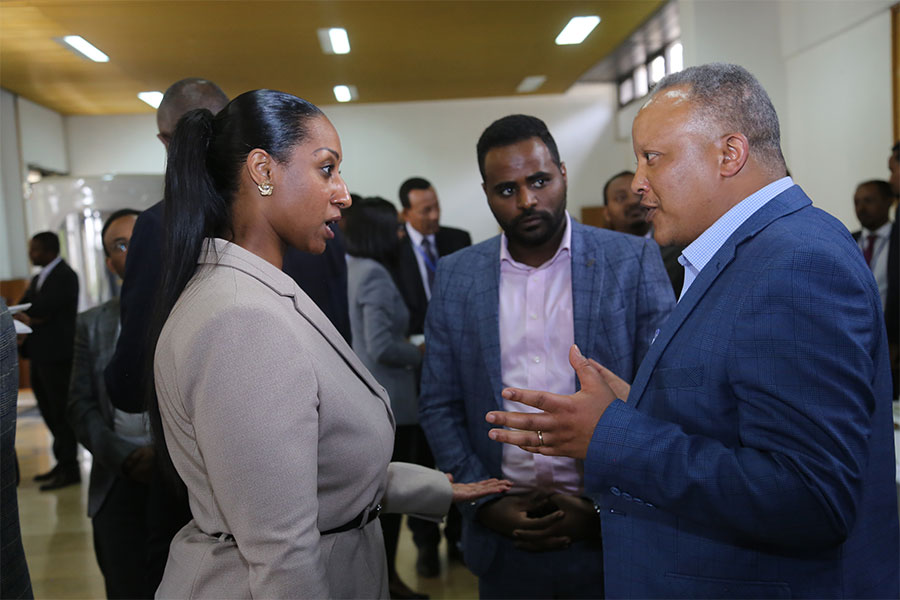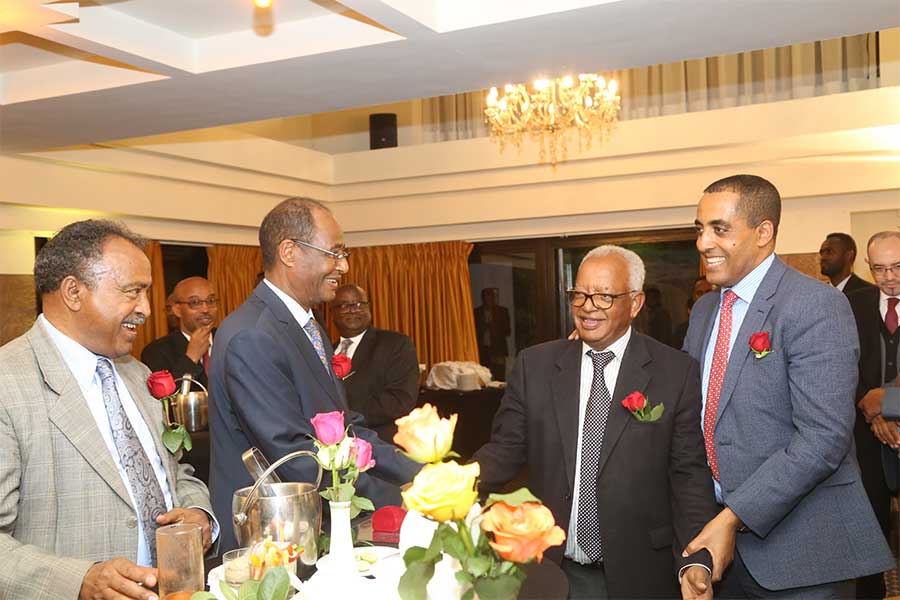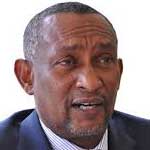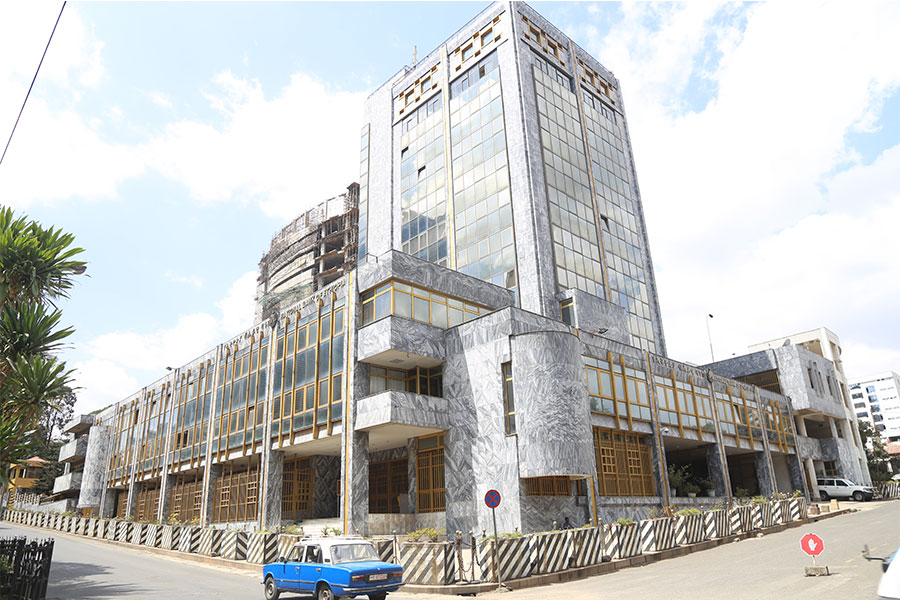
Agenda | Dec 30,2021
Jun 8 , 2024
By Hintsa Andebrhan
In January 2020, I expressed concerns about the dangerous trajectory of Ethiopian politics, attributing the descent into chaos to a political elite bent on war. I argued that certain groups, wielding disproportionate wealth, influence, and political power, threatened war, campaigning to secure dominance through a zero-sum political formula. I recommended that these influential individuals and the ruling party engage in dialogue to address their differences and work towards peace and peaceful resolutions of differences.
Unfortunately, neither side seemed willing to heed the call for peace. Nearly five years of political turmoil and a devastating civil war have ensued, claiming hundreds of thousands of innocent lives and draining billions of dollars from the economy.
It is commendable that Prime Minister Abiy Ahmed's (PhD) administration is now promoting a national dialogue process for peace, albeit belatedly. Better late than never, and there is no time bound on pursuing the peace agenda.
Despite the ongoing conflicts, if adversarial forces are genuinely committed to ending the civil war, the forward-looking dialogue forum could guide the country towards a more promising future. At the closing session of the national dialogue summit in Addis Abeba last week, the Prime Minister stated that his government is pursuing a foreign policy based on Ethiopia's national interests. While this is a laudable goal, scepticism abounds because of the lack of discernible evidence supporting his claim.
Reflecting on past events, it is clear why the Prime Minister's foreign policy position is subject to scrutiny.
While Ethiopia remains embroiled in conflicts, the national dialogue session should offer a glimmer of hope. Adversarial forces should commit to ending the civil war in the interest of peace and prosperity. The path to peace and stability requires adherence to international law and a commitment to diplomatic integrity. The government must address its shortcomings in foreign policy to protect Ethiopia's national interests.
Western countries were involved in the civil war in Ethiopia's northern region. The Prime Minister once said, some countries violated Ethiopia's airspace and supplied military weapons and satellite intelligence to warring parties. Yet, we have not seen any meaningful diplomatic actions from his government to address these breaches of Ethiopia's sovereignty and national interest.
The United Nations Security Council has convened more than 13 times to discuss Ethiopia's affairs. The heavy influence of Western countries, particularly the United States (US), played a crucial role in these discussions. However, supported by China, Russia, and India, Ethiopia's government defied the odds. Despite this, the Abiy administration's foreign policy has struggled to manage the diplomatic fallout, casting doubts on its foreign policy perspective.
We have also seen instances where diplomats in Addis Abeba made statements against Ethiopia's national interests, violating the Vienna Convention. The government's reluctance to summon these ambassadors and demand explanations for their diplomatic missteps further fuels concerns about its foreign policy. Add to this Mogadishu's demand to withdraw all Ethiopian troops from Somalia by the end of December 2024. This can be attributed to Addis Abeba's indiscretions concerning foreign policy.
These are issues the Abiy administration cannot ignore. However, there is still time to repair them. The government must address its foreign policy slips, as other countries are equally concerned about their sovereignty and national security. Ethiopia must adhere to international law and the UN and the African Union (AU) charters to engage in win-win politics. Random political manoeuvres should have no place in a modern political arena.
It is worth noting that during Prime Minister Abiy's visit to South Korea last week, he was treated with a difference. The warm reception can be attributed to Emperor Haile Selassie's diplomatic legacy, which still resonates today. The Prime Minister and his delegation must have felt the weight of Ethiopia's 60-year-old diplomatic heritage during their stay in Seul, hopefully, drawing valuable lessons on how to engage in diplomacy with honour and respect for the integrity of other nations.
PUBLISHED ON
Jun 08,2024 [ VOL
25 , NO
1258]


Agenda | Dec 30,2021

Editorial | Dec 07,2024

Commentaries | Feb 25,2023

My Opinion | Oct 12,2024

Radar | Feb 12,2022

Fortune News | Mar 07,2020

Sunday with Eden | Dec 26,2020

Radar | Dec 21,2019

Verbatim | Oct 31,2020

Fortune News | Feb 23,2019

Photo Gallery | 174760 Views | May 06,2019

Photo Gallery | 164982 Views | Apr 26,2019

Photo Gallery | 155224 Views | Oct 06,2021

My Opinion | 136724 Views | Aug 14,2021
Editorial | Oct 11,2025

Dec 22 , 2024 . By TIZITA SHEWAFERAW
Charged with transforming colossal state-owned enterprises into modern and competitiv...

Aug 18 , 2024 . By AKSAH ITALO
Although predictable Yonas Zerihun's job in the ride-hailing service is not immune to...

Jul 28 , 2024 . By TIZITA SHEWAFERAW
Unhabitual, perhaps too many, Samuel Gebreyohannes, 38, used to occasionally enjoy a couple of beers at breakfast. However, he recently swit...

Jul 13 , 2024 . By AKSAH ITALO
Investors who rely on tractors, trucks, and field vehicles for commuting, transporting commodities, and f...

Oct 11 , 2025
Ladislas Farago, a roving Associated Press (AP) correspondent, arrived in Ethiopia in...

Oct 4 , 2025
Eyob Tekalegn (PhD) had been in the Governor's chair for only weeks when, on Septembe...

Sep 27 , 2025
Four years into an experiment with “shock therapy” in education, the national moo...

Sep 20 , 2025
Getachew Reda's return to the national stage was always going to stir attention. Once...

Oct 12 , 2025
Tomato prices in Addis Abeba have surged to unprecedented levels, with retail stands charging between 85 Br and 140 Br a kilo, nearly triple...

Oct 12 , 2025 . By BEZAWIT HULUAGER
A sweeping change in the vehicle licensing system has tilted the scales in favour of electric vehicle (EV...

A simmering dispute between the legal profession and the federal government is nearing a breaking point,...

Oct 12 , 2025 . By NAHOM AYELE
A violent storm that ripped through the flower belt of Bishoftu (Debreziet), 45Km east of the capital, in...